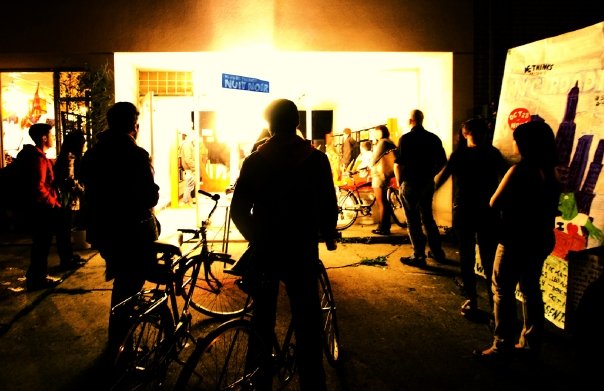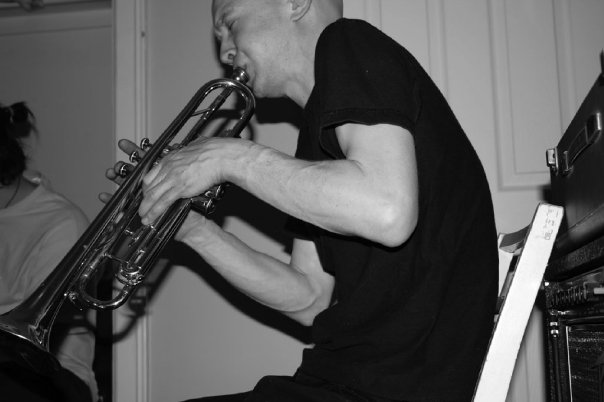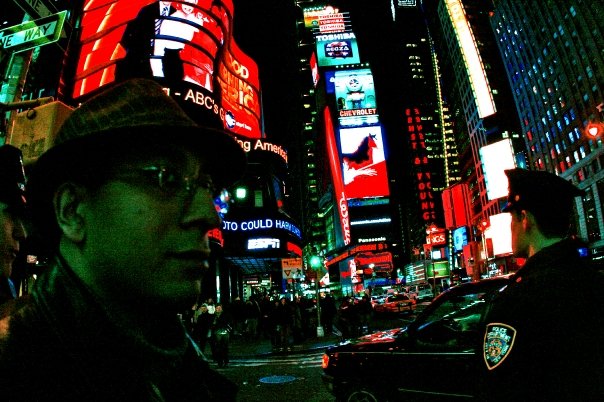I was listening to a short documentary about a young Canadian woman who travels to Egypt to rediscover her roots. Nadia Awad is her name and she works for a newspaper while living there. Nadia remarks how her new Egyptian boss constantly goads her about her Canadian identity, or lack of it. He tells her that it’s inevitable she will discard her palid Canadian distinctiveness for her true Egyptian one. He asks her “what is a Canadian, anyway?”
In the documentary, she gives the regular bit about multiculturalism and pluralism, but even that, before the enormous history of a country like Egypt, seems insubstantial. As a Canadian, I too have been caught in the headlights of such a question. After describing at great length some of the French cuisine, a young Parisian couple once asked me: “so what is Canadian food?” The question was innocent enough, but so difficult and painful to answer that for a moment I believed they, like Nadia’s boss, were goading me. After a few minutes of oowing and awing, I took the lame multicultural approach and answered that in Canada we get to eat the cuisine from whatever country the cook happens to be from. I could see by the looks of the faces of this French couple that my answer wasn’t satisfactory. And why should it be? What country these days doesn’t have Chinese or Mexican restaurants?
The best way to identify a true Canadian, aside from the large Canadian flag sewn into his/her backpack, is their inability to answer relatively easy questions about the food and culture of their country. What is traditional Canadian food? Traditional Canadian music? What are some classic Canadian books? Keep in mind, what I am looking for here is the equivalent to Poe or Whitman. And finally, what does it mean to be Canadian? For these you might be able to give me answers originating from Quebec but not without having to think about it for a while.
Why do we have problems answering questions to which people from other countries could spend hours replying?
Online answers to this Canadian affliction vary from site to site. In his article entitled “The Great Canadian Identity Crisis”, Scot Carpenter of the Liberty Free Press posits:
We are a nation of contradictions floating helplessly in a sea of confusion with no framework for living, with no proper definition of justice and without a single philosophical clue as to how a nation of civilized men interacts and sustains itself…. In the U.S., a man owns his life. The direct corollary of this right is the right to use and dispose of one’s private property, the right to arms, the right to freedom of speech, the right to freedom of association, the right to due process and so on. If being American means that the rights of the individual are unassailable by government or any other entity then what does it mean to be Canadian if we are “ not American” in the philosophical sense? It means that individuals have NO rights in the eyes of their government or, for that matter, in the eyes of the majority of the Canadian population.
Firstly, I don’t believe Canadians are going through any crisis on this matter. The word “crisis” denotes an emergency or boiling point. A problem that has lasted thirty years or more can hardly be called a crisis. What we are going through is something more along the lines of an irritating, lingering cold.
Secondly, as you read the article, it becomes steadily apparent that Scot’s “crisis” is the fact that the majority of Canadians have yet to embrace American ideology to the extent that he has.
Although I disagree with Scot’s disgruntled, Reaganesque, down-with-big-government, it’s-time-to-take-a-stand position, his ocean analogy caught my attention, not because I agree with it, but because this idea is used by another online columnist who sees our lack of a singular, solid identity as something good.
What Scot describes as contradictions in a “sea of confusion”, blogger Areanna portrays as “fluidity” in her article “I am Canadian, What am I”.
When we say our identity is forged in negation, difference, and perhaps even the quest for identity, then we have what many others do not. Fluidity. We have seen what comes from old rules and old ways. Lots of conflict. Just as an identity can forge bonds it can also be the very source of heated internal conflict. Canada, on the other hand, can change its identity as the times change. Our differences are our strength.
This is a much more positive analogy, and can explain why it is so hard for ourselves and others to define us.
A perfect example of this is when I was travelling through Greece with Canadian-born Greek friend Ari. His train tickets had been stolen and he had to go to a local police station to make a report. Thinking that it would only take a few minutes, I decided to wait in the car with his relatives, with whom we were staying. After about twenty minutes however, he hadn’t come out. I went into the station to find that he and some of the police officers yelling at each other in Greek. After much hubbub, we finally left the station with the report. “All I wanted was a police report,” he said, “but all these guys kept on asking me is why I don’t come over and fight for Greece.”
The dismissive attitude towards my friend’s Canadian passport is similar to the diminutive attitude of Nadia Awad’s boss. They can’t see us. We have no shape that they are able, or willing, to recognize. In light of this, the questions of my French travel companions regarding Canadian cuisine weren’t meant to goad me, but to help them draw a better picture of Canada using traditional identifiers, in other words, by asking age-old questions. As Canadians we have neither the identifiers nor the answers they need.
We are, as blogger Areanna describes, fluid.
Does this mean we don’t have an identity? Of course not, Virginia Wolfe once observed that that the women of her time could be given identity only through negation. (What is female? Not male.) Does this mean that up until that point the female gender had no identity? Note to men: think very carefully before you answer this. Today we definitely know what is female. But whether we lay claim to any solid Canadianisms and establish a traditional identity is up for grabs. Some feel that it is not only irrelevant for us to do so, but it is better for us that we don’t.
Canadian architect Arthur Erickson, in his June 10, 1997, Globe and Mail article, “Our lack of national identity is our strength”, claims just that. “A lack of a traditional national identity will prove to be our strength in this century as the world moves toward a “humanity-wide consciousness.” By having “no history of cultural or political hegemony – almost no history at all to hinder us – we are welcomed over all other nations. We are more open to, curious about, and perceptive of other cultures.” Erickson believes that in the future, “world economic issues rather than national interest will undermine the old paradigms.”
If we are to take Erickson’s stance, national identity, in the traditional sense, will eventually become a thing of the past. Without knowing it, Canadians might have taken the first step toward a global identity.
This curiosity and perceptiveness that Erickson mentions is taken one step further by Susan Delacourt. In her July 4th, 1998 Globe and Mail article, “Oh, say, can you see a Canadian identity?” describes Canadians as:
The world’s reigning experts at imagining how other people think and feel, even about us. We can put ourselves in somebody else’s shoes at the drop of a maple leaf…. Bilingualism, multiculturalism, and religious and political pluralism are all part of the complicated mix that we call Canadian society. They function with tolerance, but they flourish on empathy. People talk about Canada being an act of will. It may be more correct to say it’s an act of willingness. To be Canadian means to be willing to shrug off your own identity so you can imagine what it’s like to be someone else.
This willingness, Delacourt posits belongs to an attribute, which I mentioned earlier: “Sorry boys,” she states, “but Canada’s personality is showing characteristics that are typically associated with womanhood.”
Delacourt’s and Erickson’s ideas resonate even more in today’s post 9/11 world, where the need for tolerance, empathy, cooperation and fresh global perspectives is felt more than ever.
So, what is a Canadian?
The question I want to answer is: What is being a Canadian?
Being a Canadian is something new, a burgeoning art form where the aesthetic criteria to judge it has yet to emerge. This is especially true for young immigrants and people born here. It’s that aching need for new questions. It is, as Susan Delacourt quotes: an act of will; a new world perspective taking its first few steps, ever-so conscious of what it is doing and who is watching. Finally, being Canadian is to represent one bright possible future.





